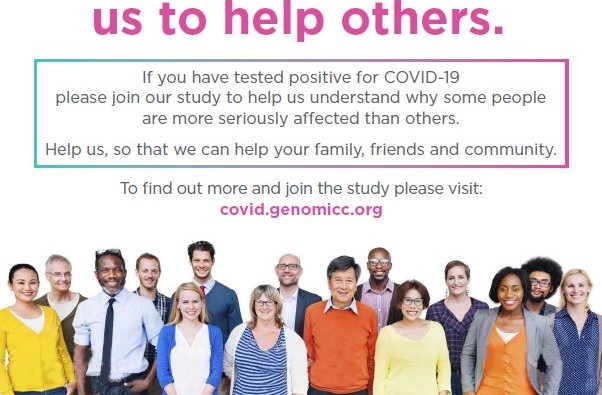- doctor issues urgent appeal for volunteers from Bradford region to help identify new treatments
- project open to anyone who caught COVID but experienced mild or no symptoms
- local Muslim leaders enthusiastically back scheme
Bradford will become the first city in England to host a ‘pop up’ blood donation centre to help scientists working on a ground-breaking COVID-19 research study – and the plan has already won the backing of the city’s Muslim leaders.
Since Friday (March 19th) eligible volunteers from the city and surrounding areas will be able to donate a blood sample at a temporary, COVID-secure centre in the city (Malik House, Oakwood Court, City Road, Bradford, BD8 8JY). If they don’t wish to travel, the scheme also offers participants the option of making an appointment for a nurse to visit their home.
The program was enthusiastically embraced in Scotland when similar sites were opened in Glasgow and Edinburgh earlier this month – and with Bradford recovering after suffering from some of the country’s highest infection and death rates, organisers are hoping for a similar response.
Local Muslim communities have enthusiastically backed the scheme, with leaders agreeing to help distribute thousands of information leaflets and posters – translated into Urdu, Bengali, Gujarati, and Punjabi – to its members. They welcomed the opportunity to get involved after researchers in the medical study issued an urgent cry for help to the city’s ethnic and minority communities.
“Tragically, the virus’s impact has been worse in Bradford than virtually anywhere else in the country,” said James Morgan, an Intensive Care Consultant and Principal Investigator for the Genomics project at Bradford Teaching Hospitals. “To date, 46,000 local people have contracted COVID – and the virus has tragically killed 1,200 people and over 3,000 others have been hospitalised.”
“Through my work in intensive care, I’ve met many patients and their families who have agreed to participate in this research to help others, at one of the most difficult times in their lives. They know that by taking part in the study, they’re taking ownership of what’s happened and can be part of the solution.
“Many of these patients were from South Asian and Pakistani backgrounds – that’s why we urgently need suitable people from these communities to join the study to provide a comparison. To date we’ve recruited around 80 people but need more to sign up.”
The unique GenOMICC COVID-19 Study analyses the genes of people who have had the virus to discover why some experienced no symptoms while others became extremely ill. The study is already contributing to the fight again COVID, with preliminary results helping identify possible new treatments.
However, for the study to continue to make progress and generate meaningful results, the scientists urgently need to recruit more people from all backgrounds – but are especially seeking the help of members of Bradford’s South Asian and Pakistani communities.
“We’re issuing an urgent appeal for more volunteers from all walks of life – and in particular for people from South Asian and Pakistani communities – to come forward and register as soon as possible,” explains Dr Kenneth Baillie, the study’s Chief Investigator.
“The quicker this research can be completed, the faster we can solve the COVID puzzle and protect vulnerable people,” said Professor Sir Mark Caulfied, Chief Scientist at Genomics England. “Genetic research into COVID-19 is now playing an increasingly important role in our fight against the virus, enabling us to identify new forms of the virus and develop treatments.
“The findings from the GenOMICC COVID-19 Study will improve the treatment, care and outcome for those most at risk, as well as helping to prioritise future vaccinations and lower the number of deaths.”
The research project is open to anyone who tested positive to COVID but experienced mild or no symptoms and didn’t require hospital treatment – volunteers can register online here.



















